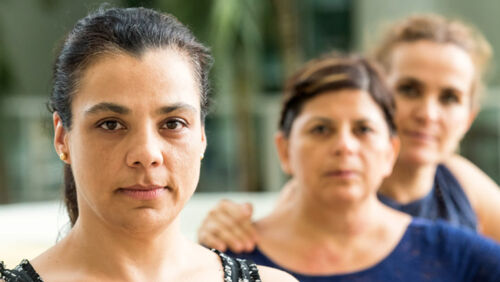How a five-year plan made my early retirement dream a reality
By Susan Hely
If you believe retirement only happens when you reach your 60s - and you want to retire earlier - then read on.
We've interviewed seven Aussies who are working towards financial independence, early retirement.
Welcome to the FIRE movement.
Joanna Jones*, 60
Retired at 51
Income: $18,000 a year
Investment strategy: owning her own home; employer share plan; maximising her superannuation.
Joanna's first step towards early retirement was to set down a five-year plan.
"I decided what I really wanted my life to look like in five years. I wanted to own a house and a car and to have won awards for my craftwork."
Joanna mapped out where she wanted to live based on public transport and narrowed down her search to part of one suburb. "I bought a cheap, unrenovated house in the inner city. It was a dump and I lived in it and gradually fixed it up as I had extra money."
She lived for years with cracked walls and an original kitchen and bathroom.
"I fixed one room at a time, living in the other rooms," she says. "One day I climbed up my ladder to knock off the plaster in what had been my bedroom, hit the plaster once, and the whole wall collapsed - nothing was holding it on. I had been sleeping in that room for four years since the restumping, and the plaster could have collapsed at any moment."
She also participated in an employee share plan and hung onto the shares for many years.
Her first set of wheels was a small secondhand car that she kept until it stopped working one night at roadworks on a freeway in the pouring rain. "I keep cars until they become unreliable, despite regular services and being well maintained."
She was retrenched at about the same time as she paid off her home loan. Part of the retrenchment deal included some financial advice. "I went contracting and started a business and an SMSF. I paid myself only as much as I was spending and I kept my spending low. The rest, about 70%, went into superannuation.
"Each time I moved jobs I added the super into my SMSF because no workplace would put money directly into an SMSF then. Many corporate jobs had defined benefit superannuation anyway, so when I left there wasn't much to transfer.
"I was spending around $18,000 a year. I went to a seminar about my superannuation scheme, and there was a financial planner there. I told him what I had and how much I spent, and he said I could retire tomorrow. It took a while to believe him. I got a few months off work and spent that time making really sure all the figures were right, and then retired at 51."
Joanna keeps her spending low but doesn't think she does anything extreme. "I never had a television - I think that helps enormously, as you aren't continuously bombarded by the latest and greatest gadget, and you have time to develop skills. I have found that since leaving work my spending has gone down.
"I make most of my clothes, so I don't go clothes shopping. Clothes are more expensive to make but if you don't go clothes shopping you are much less likely to have far too many clothes."
Joanna also grows her own food.
"I have enough fruit trees in my garden to never need to buy any fruit. I grow vegetables. I love soup, and in winter hearty soups are my main meal. I have cheap hobbies, and when I worked most holidays were spent volunteering at exhibitions or doing other things related to my hobbies, rather than having an expensive trip."
Joanna remembers that when she was a child her pocket money lasted longer than anyone else's. "So I guess I was always frugal." She says she finds it bizarre that people believe they can have everything.
"No one can. But you can have a lot. I was always amazed that all my work colleagues could afford to go overseas every year. I decided that I was no good at finances, and they were much better than me. I also think that, even now, I do have a high consumption level."
In Joanna's retirement she looks after her parents, who have had some health issues and are becoming more fragile.
"There is no way I could have done that and still be working. They started to be ill occasionally before I stopped working and the stress of trying to both work and look after them was too much even then. I am really happy that I retired because I can do things for them."
She admits she has one luxury: travel.
"Each year I work out how much was left over from last year, decide where I want to go and plan an itinerary accordingly."
She looks for special deals. For example, she once drove an RV that had to be relocated from Seattle to Anchorage in the US for 25% of the regular price.
Joanna gives to a charity every year too. She makes sure that she gives more than what she spends on travel, or one-tenth of her "income", whichever is greater.
* Not her real name.
Get stories like this in our newsletters.



